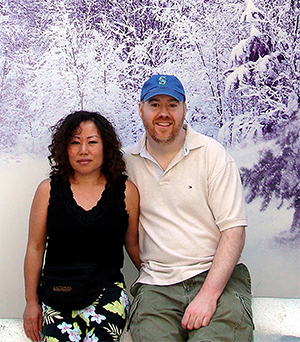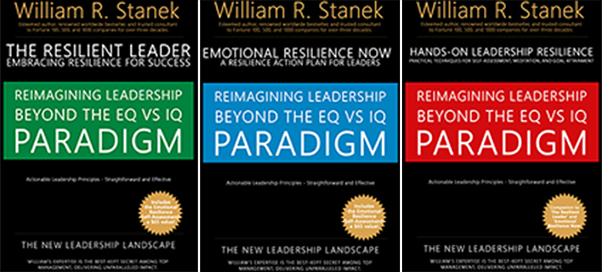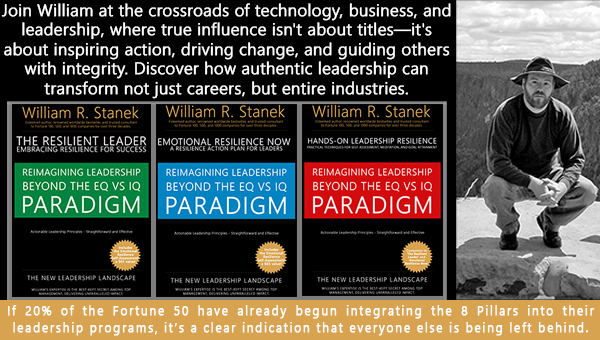

Mindful Living
Discover how mindfulness can enrich your daily life. Whether you're new to the practice or deepening your journey, these insights from William and Hui Cha Stanek provide guidance on living with awareness, purpose, and connection.

Transform your life with practical wisdom. Discover William Stanek's 'Living Well' series—your guide to a balanced and fulfilling life.
Discover William Stanek's Exclusive Art Collection
Explore and purchase the stunning art featured on this site. Own a piece of William Stanek's unique and captivating artwork today!
(April 25, 2025) The Impact of Decluttering Your Mind: Mental Exercises to Clear Your Thoughts
In today’s fast-paced world, our minds are constantly bombarded with information, tasks, and worries. It’s easy to feel overwhelmed, with thoughts racing and stress levels rising. When your mind is cluttered, it can be difficult to focus, make decisions, and find peace. For Hui Cha and me, finding ways to declutter our minds became essential to maintaining our mental well-being, especially when life felt chaotic or overwhelming.
Decluttering your mind is much like decluttering your physical space—it’s about creating room for clarity, focus, and calm. By practicing mental exercises that help clear your thoughts, you can reduce stress, improve concentration, and make space for what truly matters. In this article, we’ll explore techniques for decluttering your mind, such as meditation, deep breathing, and brain dumps, and offer practical tips for incorporating these practices into your daily routine. Whether you’re looking to enhance your focus, reduce mental stress, or simply find a bit of peace in a busy world, these exercises can help you clear your mind and regain control over your thoughts.
The Impact of Mental Clutter on Well-Being
Mental clutter refers to the overwhelming accumulation of thoughts, worries, and distractions that occupy your mind. Just as physical clutter can make a room feel chaotic and stressful, mental clutter can create a sense of overwhelm and anxiety, making it difficult to focus, relax, and enjoy life. When your mind is cluttered, it can lead to:
- Increased Stress: Constant mental chatter and worry can raise stress levels, making it harder to cope with challenges and maintain a sense of calm.
- Reduced Focus: A cluttered mind can make it difficult to concentrate on tasks, leading to decreased productivity and a sense of being scattered or unfocused.
- Decision Fatigue: When your mind is filled with competing thoughts and concerns, making decisions can become exhausting, leading to poor choices or decision paralysis.
- Sleep Disturbances: Mental clutter can interfere with your ability to relax and unwind, making it harder to fall asleep or enjoy restful sleep.
For us, managing mental clutter was crucial to maintaining our well-being, especially during times of stress or transition. By practicing techniques to clear our minds, we were able to reduce stress, improve focus, and find a greater sense of peace and clarity.
Techniques for Decluttering Your Mind
Decluttering your mind involves creating mental space by letting go of unnecessary thoughts, worries, and distractions. Here are some techniques that have helped us clear our thoughts and maintain mental clarity:
-
Meditation: Finding Stillness in the Mind
- Meditation is one of the most effective ways to declutter your mind. By focusing your attention on your breath, a mantra, or a specific visualization, you can quiet the mental chatter and create a sense of inner calm.
- How to Practice Meditation:
- Find a quiet, comfortable place to sit or lie down. Close your eyes and take a few deep breaths, allowing your body to relax.
- Focus your attention on your breath, noticing the sensation of each inhale and exhale. If your mind starts to wander, gently bring your focus back to your breath.
- You can also use a mantra (a word or phrase repeated silently) or a visualization (such as imagining a peaceful place) to help focus your mind.
- Start with just a few minutes of meditation each day, gradually increasing the time as you become more comfortable with the practice. Regular meditation can help clear your mind, reduce stress, and improve your ability to focus.
-
Deep Breathing: Releasing Tension and Quieting the Mind
- Deep breathing exercises are a simple yet powerful way to clear your mind and reduce stress. By focusing on your breath, you can release physical tension and quiet mental noise.
- How to Practice Deep Breathing:
- Sit or lie down in a comfortable position. Close your eyes and take a deep breath in through your nose, allowing your abdomen to expand.
- Hold your breath for a moment, then slowly exhale through your mouth, releasing any tension as you do.
- Continue to breathe deeply and slowly, focusing on the sensation of your breath entering and leaving your body. If your mind starts to wander, gently bring your focus back to your breath.
- Practice deep breathing for a few minutes whenever you feel stressed, overwhelmed, or in need of mental clarity. This exercise can help you reset your mind and create a sense of calm.
-
Brain Dump: Clearing Mental Clutter by Writing It Down
- A brain dump is a technique where you write down all the thoughts, tasks, and worries that are cluttering your mind. By putting them on paper, you can release them from your mind and gain a clearer perspective.
- How to Practice a Brain Dump:
- Take a notebook or a piece of paper and set aside some time to write. Start by writing down everything that’s on your mind—tasks you need to do, worries, ideas, or anything else that’s occupying your thoughts.
- Don’t worry about organizing your thoughts or writing in complete sentences. The goal is to get everything out of your head and onto the page.
- Once you’ve written everything down, take a moment to review your list. Identify any tasks that need to be prioritized, and let go of anything that isn’t important or within your control.
- A brain dump can be especially helpful at the end of the day, allowing you to clear your mind before bed and enjoy more restful sleep.
-
Mindful Walking: Connecting with the Present Moment
- Mindful walking is a form of meditation that involves paying attention to the sensations of walking and your surroundings. This practice can help you clear your mind, reduce stress, and connect with the present moment.
- How to Practice Mindful Walking:
- Find a quiet place to walk, such as a park, garden, or quiet street. As you walk, focus on the sensations in your body—the feeling of your feet touching the ground, the movement of your legs, and the rhythm of your breath.
- Pay attention to your surroundings, noticing the sights, sounds, and smells around you. If your mind starts to wander, gently bring your focus back to the act of walking and the present moment.
- Practice mindful walking for at least 10 minutes each day. This exercise can help you clear your mind, reduce stress, and improve your overall well-being.
Personal Story: How Decluttering Our Minds Improved Our Well-Being
There was a time when the demands of work, family, and personal responsibilities began to take a toll on our mental well-being. We found ourselves constantly thinking about what needed to be done, worrying about the future, and feeling overwhelmed by the sheer volume of thoughts racing through our minds. The mental clutter made it difficult to focus, make decisions, and enjoy the present moment.
Recognizing the need for change, we decided to incorporate mindfulness practices into our daily routine to help clear our minds and reduce stress. We started with simple meditation sessions each morning, followed by deep breathing exercises throughout the day. We also introduced brain dumps into our evening routine, allowing us to release the day’s mental clutter before bed.
The impact was profound. By decluttering our minds, we found that we were able to focus more easily, make decisions with greater clarity, and approach our daily tasks with a sense of calm and purpose. The mental exercises we practiced not only reduced our stress levels but also improved our overall well-being, allowing us to live more mindfully and enjoy the present moment.
Practical Tips for Incorporating Mental Decluttering Techniques into Your Daily Life
Decluttering your mind is a practice that requires consistency and commitment, but the benefits are well worth the effort. Here are some practical tips for incorporating mental decluttering techniques into your daily life:
-
Start with Small Steps:
- If you’re new to mindfulness practices, start with small, manageable steps. Begin with just a few minutes of meditation or deep breathing each day, gradually increasing the time as you become more comfortable.
- Remember that mental decluttering is a process, and it’s okay to take it one step at a time.
-
Create a Daily Routine:
- Incorporate mental decluttering exercises into your daily routine, such as practicing meditation in the morning, deep breathing during breaks, and a brain dump before bed.
- Consistency is key to maintaining a clear mind, so make these practices a regular part of your day.
-
Use Mindfulness Tools:
- Consider using mindfulness tools, such as guided meditation apps, journals, or breathing exercises, to support your mental decluttering practice.
- These tools can help you stay focused and motivated as you develop your mindfulness skills.
-
Be Patient with Yourself:
- Mental decluttering takes time and practice. Be patient with yourself as you develop these new habits, and don’t get discouraged if your mind feels cluttered at first.
- Approach your practice with compassion and a growth mindset, recognizing that each day is an opportunity to improve and find greater clarity.
-
Reflect on the Benefits:
- Take time to reflect on the benefits of your mental decluttering practice. Notice how it affects your focus, stress levels, and overall well-being.
- Reflecting on the positive impact of these practices can help you stay motivated and committed to your mindfulness journey.
Conclusion: The Power of a Clear Mind for Well-Being
For Hui Cha and me, decluttering our minds was a transformative experience that significantly improved our focus, reduced our stress, and enhanced our overall well-being. We learned that by practicing mindfulness exercises like meditation, deep breathing, and brain dumps, we could clear our thoughts, create mental space, and approach life with greater clarity and calm.
We believe that mental decluttering is an essential practice for anyone looking to improve their mental health and well-being. By incorporating these techniques into your daily routine, you can reduce mental stress, enhance your focus, and make space for what truly matters in your life.
We encourage you to explore the mindfulness techniques and tips we’ve shared and to apply them in your own life. Whether you’re facing a busy schedule, dealing with stress, or simply looking to create more mental clarity, these exercises can help you declutter your mind and find peace in the present moment.

Join William at the crossroads of technology, business, and leadership, where true influence isn't about titles - it's about inspiring action, driving change, and guiding others with integrity. Discover how authentic leadership can transform not just careers, but entire industries.
Bring Inspiration Home
Enhance your space with William Stanek's evocative art. Each piece is crafted to inspire and uplift your everyday life.

Support The Lights of Paris by Robert Stanek, William Stanek's pen name! Through vivid historical detail and deeply moving character stories, Robert takes readers on an unforgettable journey through one of history’s most transformative times.

















